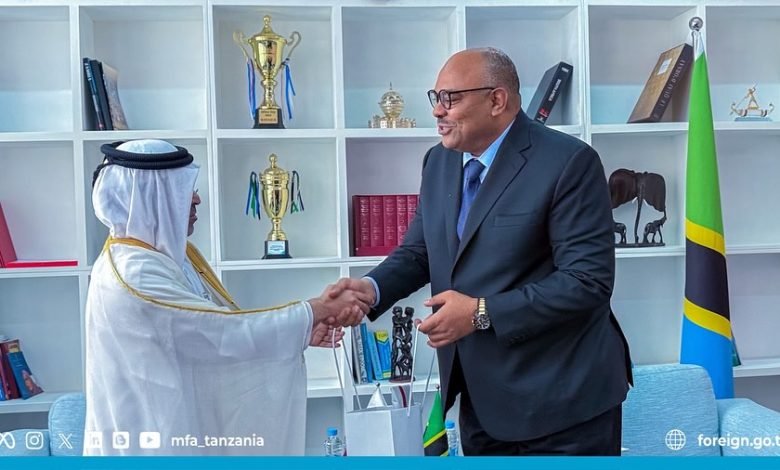Tanzania and Qatar have reaffirmed their commitment to deepening bilateral relations by expanding cooperation in key areas including trade, investment, energy, and infrastructure development.
During a high-level diplomatic meeting held in Dar es Salaam on Wednesday, Tanzania’s Minister for Foreign Affairs and East African Cooperation, Ambassador Mahmoud Thabit Kombo, met with Fahad Rashid Al Marekhi, the Ambassador of Qatar to Tanzania, to discuss actionable frameworks for enhancing bilateral ties.
The two diplomats emphasized the need to fast-track the signing of several Memoranda of Understanding (MoUs), aimed at formalizing collaborative efforts in multiple sectors. Ambassador Kombo highlighted the importance of building strong partnerships grounded in peace, security, and sustainable economic growth that benefits citizens of both nations.
“This partnership is based on mutual respect, shared interests, and a common vision for regional and global development,” he said.
Ambassador Al Marekhi noted that Qatar sees Tanzania as a strategic partner in Sub-Saharan Africa, especially given the country’s growing reputation as a hub for agriculture, mining, and tourism.
Also Read; African and Caribbean Leaders Seek Stronger Trade Partnership
Both sides also discussed leveraging Qatar’s expertise in the oil and gas sector to support Tanzania’s growing ambitions in natural gas exploration. Tanzania, on the other hand, expressed its interest in boosting agricultural exports and welcoming Qatari investment in food processing and logistics.
This diplomatic engagement is part of a broader push to align with global targets outlined in the United Nations Sustainable Development Goals (SDGs), particularly in promoting industrial growth, innovation, and reduced inequalities.
Qatar, one of the wealthiest nations per capita due to its natural gas reserves, has increasingly looked to diversify its foreign investments, including in African markets. Tanzania, with its young population and stable governance, offers attractive conditions for long-term partnerships.
In addition to economic collaboration, the discussions also touched on enhancing cultural exchange, educational cooperation, and digital innovation — sectors increasingly central to modern diplomacy.
The meeting concluded with both nations agreeing to establish a timeline for the signing of the agreements, with implementation plans expected to roll out in the coming months.







